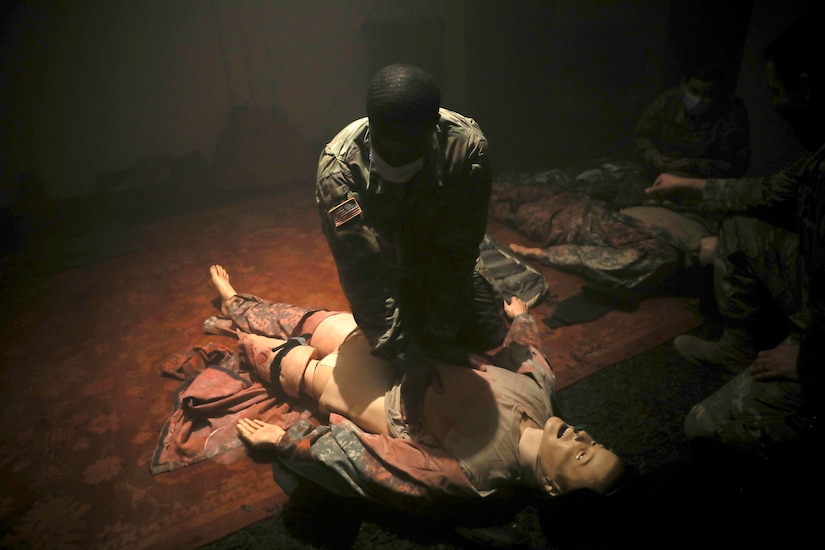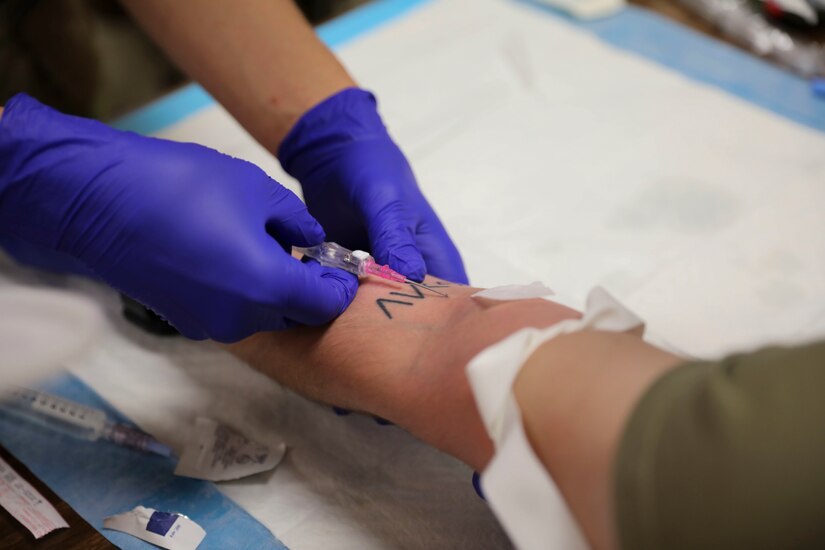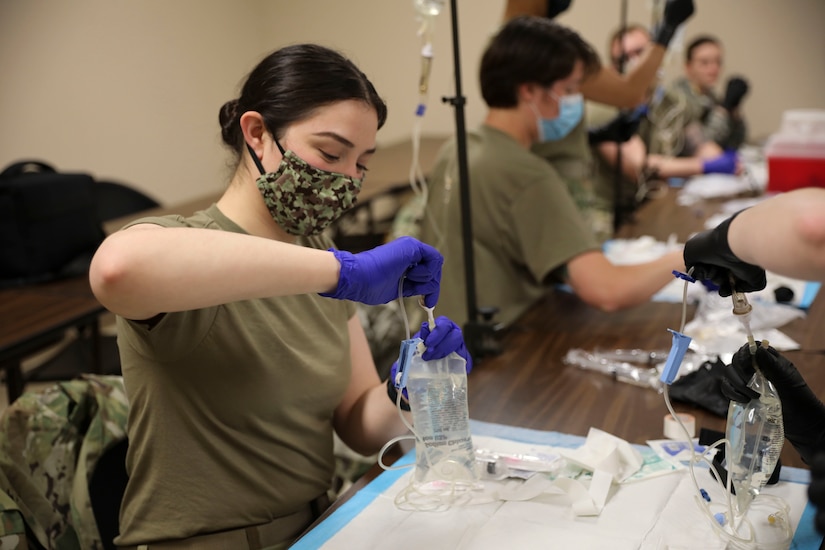Indiana National Guardsmen have been serving Hoosier citizens throughout the COVID-19 response. Despite rigorous missions across the state, these guardsmen continued to maintain combat readiness by practicing combat-related medical care.

"Training and rehearsals facilitate an efficient, robust and reproducible delivery of services," said Army 1st Sgt. Ryan A. Richmond, the medical branch noncommissioned officer in charge of the Indiana Medical Detachment. "Empowered health care professionals are force multipliers, and they have consistently shown how they are able to turn theory into practice with tailored training over accelerated timelines without losing quality of instruction and patient care."
Between tasks in assisting the community through various missions, the guardsmen completed training on combat-related care at the Medical Simulation Training Center at Camp Atterbury, Indiana. The advanced training facility is one of 22 MSTC sites in the world.
Training began in a lecture format, followed by IV practice. Finally, medics ran through a realistic, hands-on medical training in a combat scenario using cutting-edge patient simulators. Instructors remotely controlled the simulators to display symptoms that included blinking, breathing, increasing or decreasing heart rate, bleeding and more.
The patient simulators were placed in a low-lit room filled with smoke, flashing lights and loud noises to simulate a combat environment. This tested the medics' knowledge and ability to administer care in the battlefield while learning and developing muscle memory.

Having high-quality equipment and experienced trainers provided guardsmen the opportunity to increase combat readiness through intensive, realistic training that many leaders hope to continue for guardsmen serving in a traditional status.
The guardsmen also participated in other training, such as running through a litter course, loading and unloading patients on military vehicles, search and rescue training in a rubble pile, suturing practice on pig skin and learning how to provide medical care while in a helicopter.
When the guardsmen weren't training, they served to accomplish their designated COVID-19 response missions. These guardsmen helped thousands of Hoosiers at mobile testing centers across the state while providing relief to multiple civilian agencies and organizations.
"Serving during this pandemic has changed the way people look at how we are serving and has forced us to be flexible and tactical in everything we do," said Army Capt. Jessica Philbin, the medical operations officer for the 219th Engineer Brigade. "It is critical as citizen-soldiers and citizen-airmen to be able to come together in an unfortunate situation to help Hoosiers. We are here fighting the pandemic all together, but we are also able to get some training experience out of it as well."
The training also provided an outlet to relieve stress from working on the frontlines of the COVID-19 pandemic and an opportunity to build relationships across branches. While the operational tempo was rigorous during the statewide response, these guardsmen were proud to be serving their communities while developing themselves as medics, soldiers and airmen.

"These are two different types of scenarios," said Army Cpl. Kaley Beckham, a medic with the 738th Area Medical Support Company. "Working with this pandemic is definitely not the same as this training, but they are equally as important. I hope that I have the opportunity to do this training again."
Their effectiveness in accomplishing missions while simultaneously honing their combat-care skills, speaks to the Indiana National Guard's overall commitment to the readiness to fight any enemy — foreign or domestic — that may threaten the state or nation.
"Our health care professionals within the Indiana National Guard are catalysts in the delivery of care while assigned to missions during the state response," Richmond said. "Ensuring each and every one of them have the fundamental knowledge, skills and most up-to-date information facilitates mission readiness, their safety and their success."
(Army Cpl. Hannah Clifton is assigned to the Indiana National Guard.)








No comments:
Post a Comment